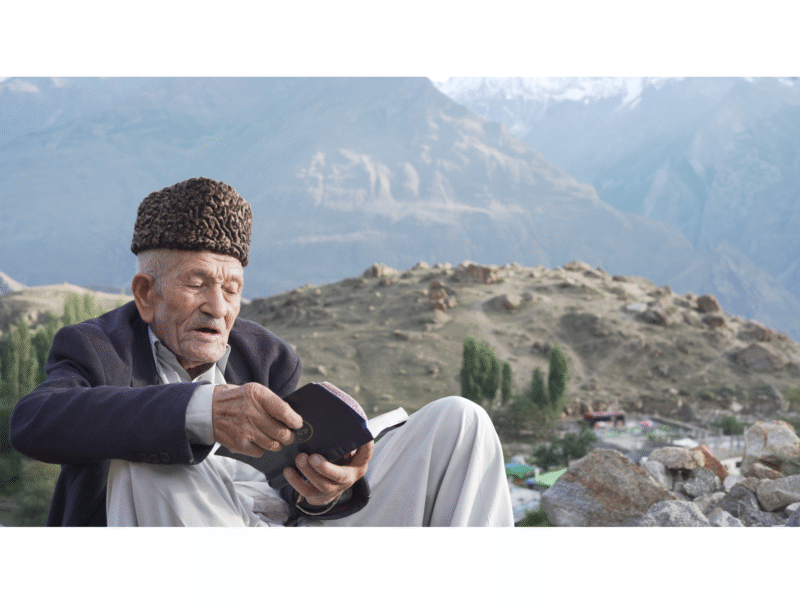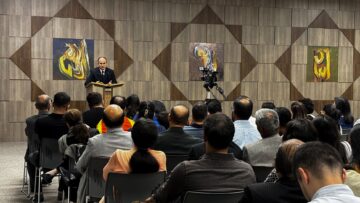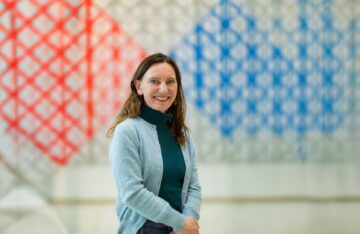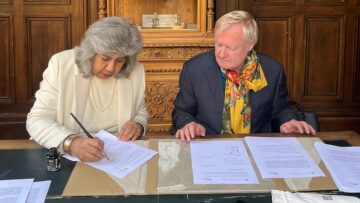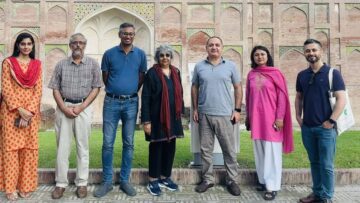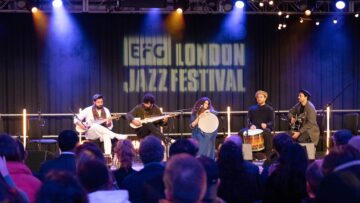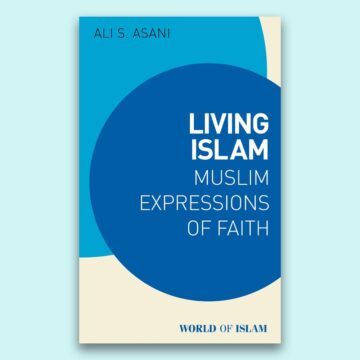A dedicated Oral History Project at the IIS will build an archive of recordings of the memories, stories and experiences of Ismaili communities across the world.
The Oral History Project run by the IIS’s Ismaili Special Collections Unit (ISCU) aims to preserve local histories as well as the intangible cultural heritage of the diverse Ismaili communities around the world. The project will seek to capture the regional, linguistic, ethnic and gender diversity of the global JamatAssembly or religious congregation; also a term used by the Nizari Ismailis for their individual communities., as well as its various faith traditions.
The team will conduct recorded interviews while developing an Oral History Portal in 2023, which will allow members of the communities to submit their own stories for the archive.
The IIS has previously collected oral history testimony as well as traditions of the Jamat, and these recorded interviews and other material will also be included in the project archive.
The project’s focus is on recording, preserving, and presenting the contemporary history of Ismaili communities. It will ultimately create an accessible digital research resource of Ismaili voices, which will benefit historians, scholars, and members of the Ismaili communities (and the public) interested in this era of Ismaili history.
Interviewees will primarily be members of the Jamat, but the team will also collect the memories of individuals from outside Ismaili communities who have worked with Ismaili institutions. The immediate focus will be the memories of elders, and, with time, this will be extended to other age groups.
Rizwan Karim, who co-ordinates the project, says:
Oral history as a research method embeds storytelling and humanises historiography by including human voices in the preservation of the intangible heritage of people who are otherwise marginalised and risk losing their literature, languages and identities due to orality.
The IIS Oral History Project as a part of ISCU’s work on heritage, is a community-centric endeavour to preserve the intangible heritage of the contemporary diverse Ismaili Muslim communities across the globe through the voices of people who have experienced, witnessed, and participated in events that have shaped the communities today. Combining human voices and digital technologies, we aim to create a historical resource for academia but more importantly for our future generations.”

